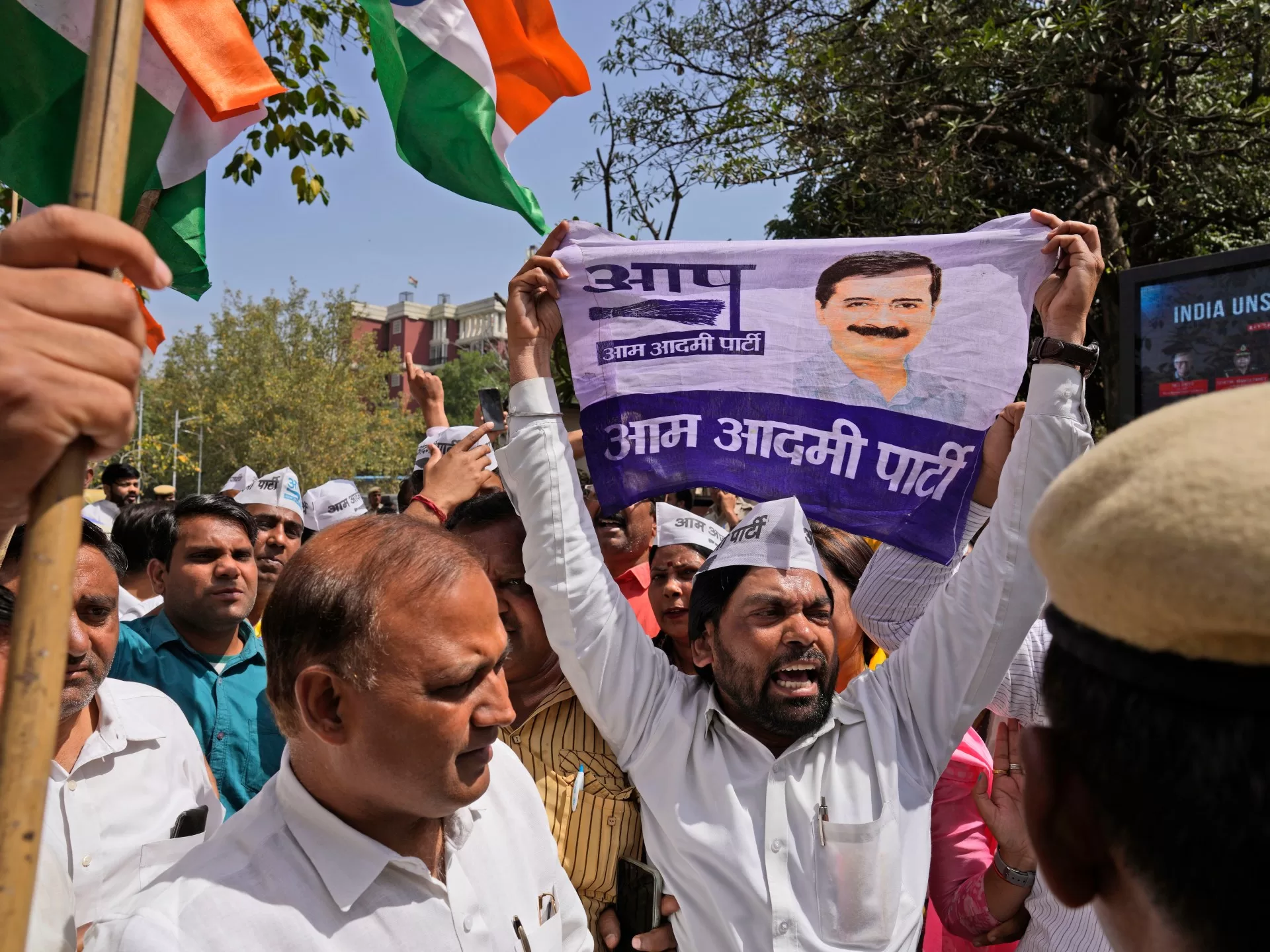Delhi Chief Minister Arvind Kejriwal’s arrest a month before national election comes under increasing global scrutiny.
“India’s legal processes are based on an independent judiciary which is committed to objective and timely outcomes. Casting aspersions on that is unwarranted,” India’s foreign ministry said on Wednesday.
“In diplomacy, states are expected to be respectful of the sovereignty and internal affairs of others. This responsibility is even more so in case of fellow democracies. It could otherwise end up setting unhealthy precedents.”
Kejriwal was arrested by India’s main financial investigation agency last week on corruption charges. His Aam Aadmi Party (Common Man’s Party or AAP), which governs the national capital territory and the northern state of Punjab, denies the allegation, calling it a “fabricated case”.
On Monday, a US State Department spokesperson said it was closely following reports of Kejriwal’s arrest.
“We encourage a fair, transparent, and timely legal process for Chief Minister Kejriwal,” the spokesperson said in response to an emailed query about the case.
The US remarks came after similar comments by Germany prompted admonishment from New Delhi, which summoned a German envoy to protest against his government’s remarks about the arrest.
At a news conference on Friday, Sebastian Fischer, spokesperson for Germany’s foreign office, said that like anyone else facing accusations, Kejriwal was entitled to a fair and impartial trial.
“We assume and expect that the standards relating to independence of judiciary and basic democratic principles will also be applied in this case,” he said.
New Delhi summoned the German embassy’s deputy chief of mission, Georg Enzweiler, “and conveyed India’s strong protest” at the remarks, India’s foreign ministry said on Saturday.
“We see such remarks as interfering in our judicial process and undermining the independence of our judiciary,” it said in a statement. “Biased assumptions made on this account are most unwarranted.”
Asked about India’s response to Germany, the US State Department spokesperson said: “We would refer you to the German foreign ministry for comment on their discussions with the Indian government.”
The acting US deputy chief of mission in New Delhi was also summoned on Wednesday, Indian news agency ANI reported.
Washington has increasingly come to view India as an important strategic and economic partner in its effort to push back against China’s growing power worldwide.
Indian Prime Minister Narendra Modi’s government has frequently shown itself sensitive to human rights criticism, and rights advocates have accused US President Joe Biden’s administration of putting strategic considerations above rights issues in its dealings with New Delhi.
New Delhi and Berlin also share good ties, and the two countries have been coming closer on strategic issues, including defence technology.
India’s financial investigation agency, the Enforcement Directorate (ED), which arrested Kejriwal, has launched probes into at least four other state chief ministers or their family members – all of them Modi’s political opponents.
The entire top leadership of the AAP is in jail, including Kejriwal’s deputy Manish Sisodia. In February, Jharkhand state’s Chief Minister Hemant Soren was arrested and jailed on corruption charges.
But the government and Modi’s Hindu nationalist Bharatiya Janata Party (BJP) deny any political interference in the cases involving their opponents.
Nearly a billion Indians will vote to elect a new government in a six-week-long parliamentary election starting on April 19, the largest democratic exercise in the world.
